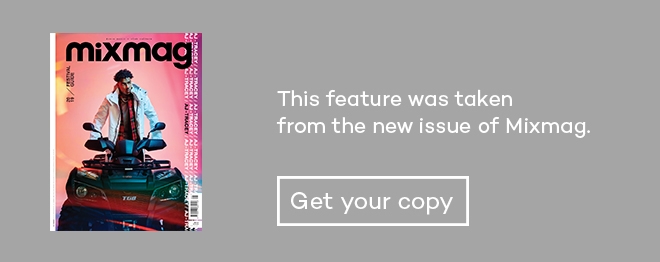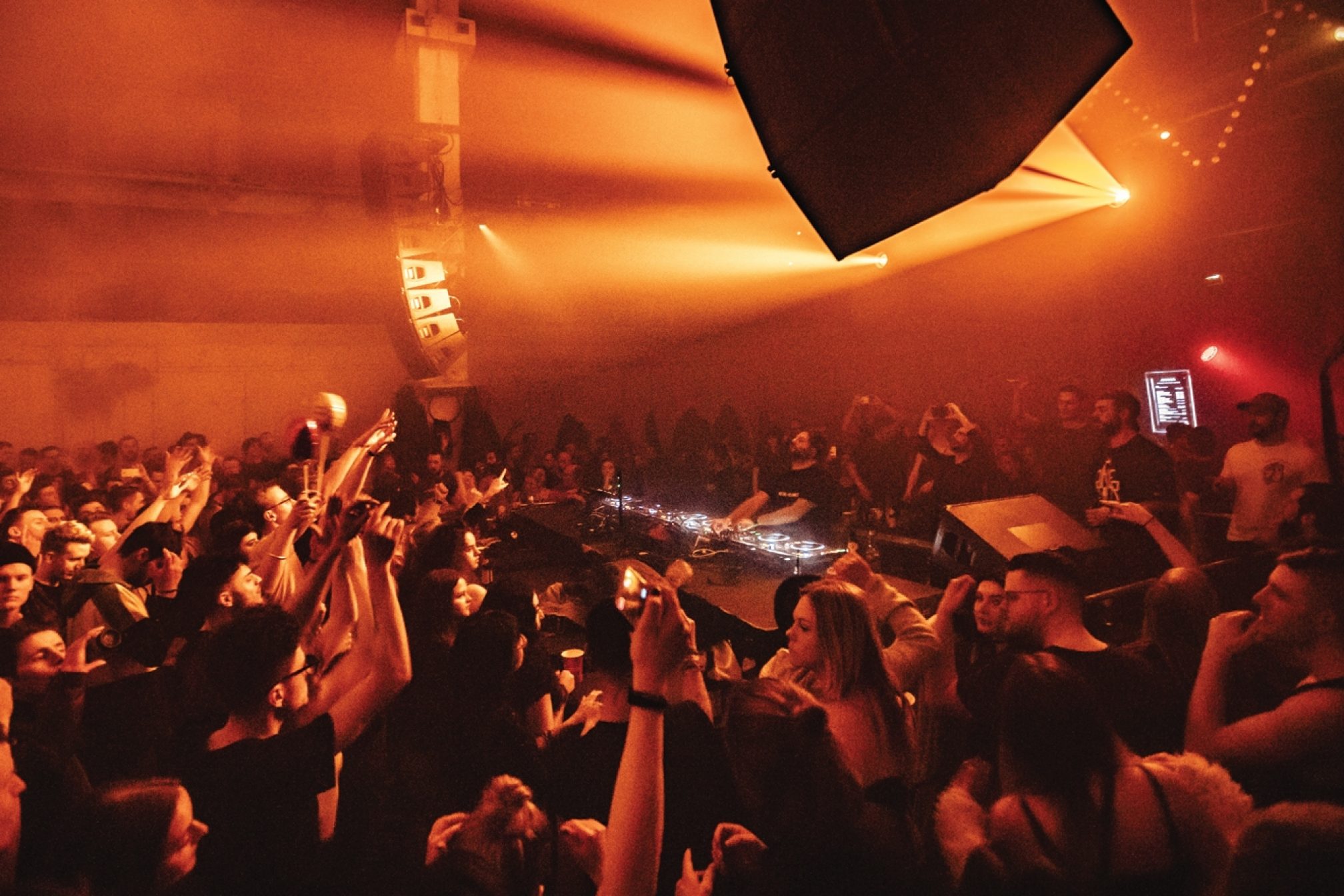 Scene reports
Scene reports
No VIP: How MMA exorcised the ‘bad energy’ of a former Nazi Party power station
Munich’s MMA is a stunning and inclusive club venue. But can they fight the property developers?
“The best way to see it is from above,” says Human Rias, music booker at Munich’s MMA, as he leads us through the corridors of this uniquely stunning club. We squeeze past the snaking, impatient cloakroom queue, edge by the security guard blocking a restricted fire door and make our way through dusty, strip-lit storerooms and corridors.
“Are you ready?” Rias asks, pausing for effect as we get to within one door of our destination, that door rumbling against its hinges with the weight of the bass being flung against it from the other side. He throws it open and we step into the darkness of the gantry high above the dancefloor.
On the opposite wall, rows and rows of bricked-up windows are individually lit like an art installation, vaulting high above us in blazing, satanic red and cold blue and purple. Moving closer to the guard rail, the vertigo-inducing drop down to the rectangular dancefloor of this old power station reveals it filled with moving bodies, encircling a raised DJ booth at one end. The sound is clear but pummelling, a deep, dark, relentless techno pulse of the kind Germany is famous for.
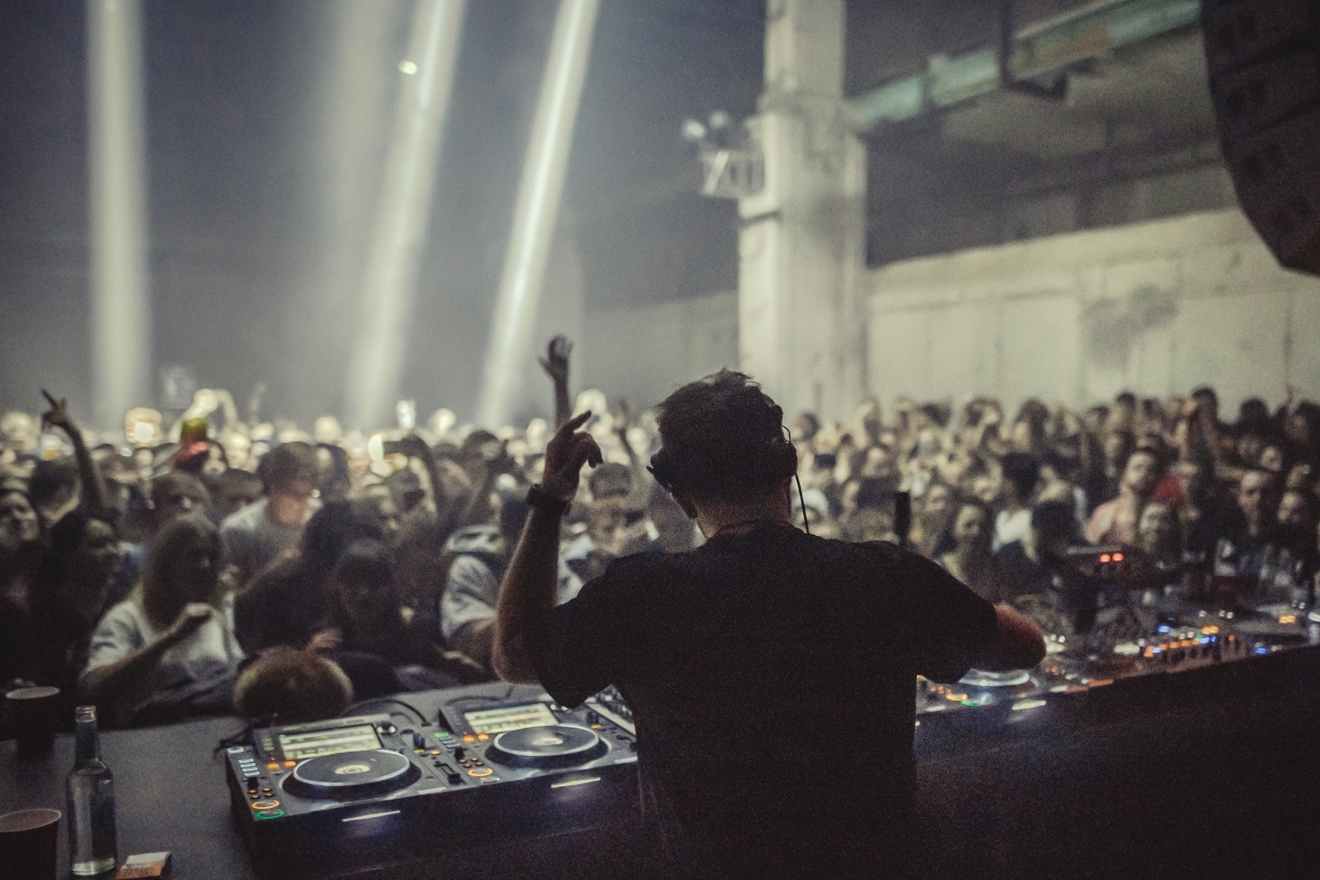
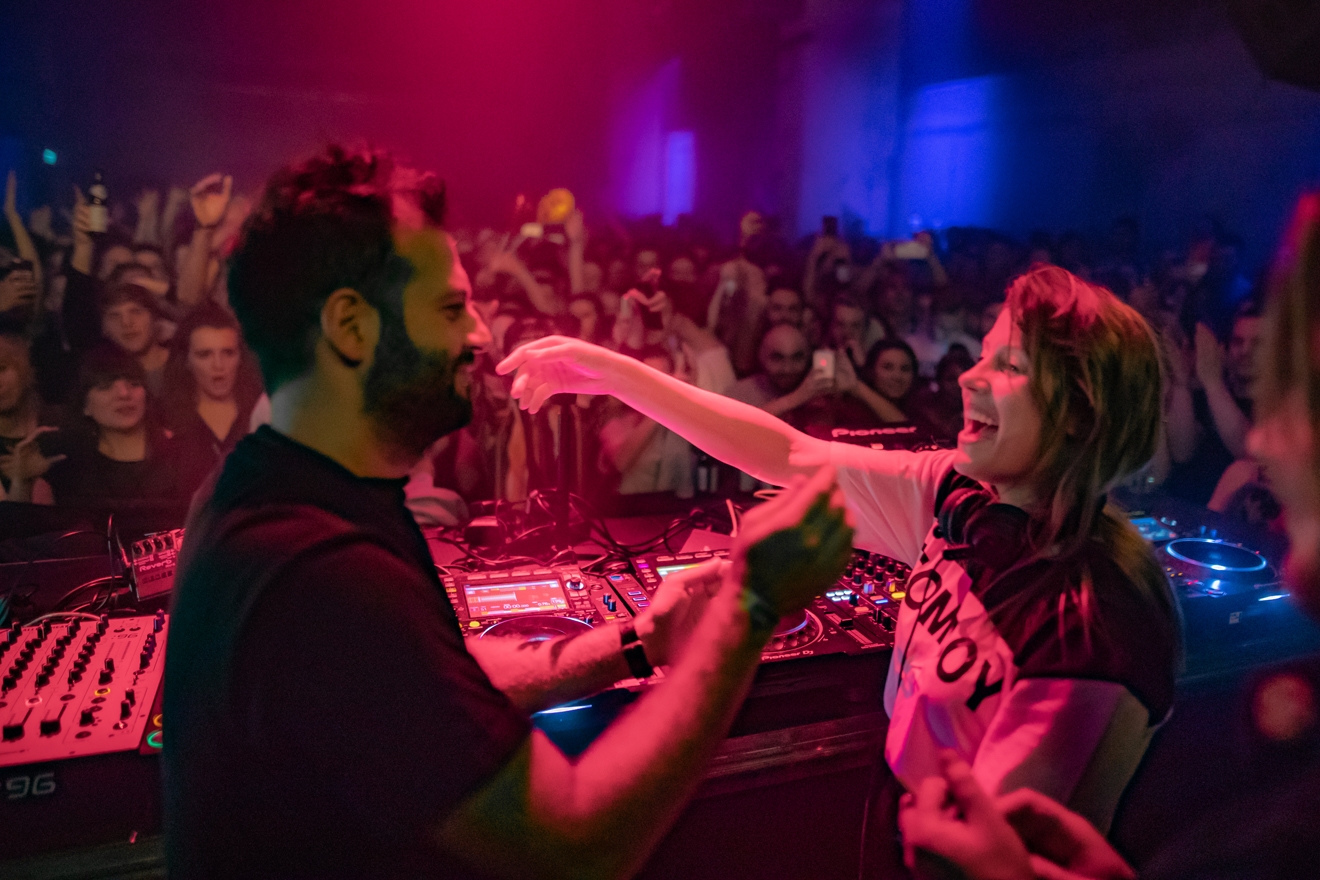
In the booth, Milanese Drumcode alumnus Enrico Sangiuliano is handing over to headliner Charlotte de Witte, fans welcoming her with outstretched arms, close enough for her to reach out over and return the gesture. Both artists exemplify the musical style of MMA: dark and hard-edged, but with a warmth and humanity lurking in the groove. De Witte opens with Falhaber’s ‘Discard’, its harsh, metallic chime ramping up the drama of her arrival.
Down on the dancefloor it’s elbow room only, but the height of the ceiling means it’s no sweatbox. “There are maybe fourteen hundred people in here just now,” guesses Rias over the torrent of noise. The corridors downstairs are busy with many others, resting in the sparse, graffitied stairwells and smoking amid the dank tobacco fog of the subterranean corridor which links this building to the low, compact club room under the courtyard outside.
Across this courtyard, away from the checkpoint-like entry to the MMA complex, throngs of largely student-age clubbers wait expectantly in the unseasonably warm February night. How are they all going to fit in here? “They won’t,” says Rias. “Tonight we’ll turn away maybe six hundred people. I’ve never seen a night like it.”
Renovated in 2013 and opened early the following year, MMA (it stands for Mixed Munich Arts – it’s also used for opera, theatre, exhibitions and even corporate events) is a cavernous space which perfectly suits the music played. “We’re the biggest [in Munich] for electronic music, for techno,” Mathias Arifin, one of the venue’s owners, tells us. An economics graduate who’s been involved with club promotion in Munich for a long time, he’s a big, urgent-looking guy who looks like he could easily do a shift on the door downstairs. He digs out a video clip on his computer showing MMA as it was before, all enormous turbines and plant equipment, and shows it with pride, proof of just how much work went into converting the space into the mighty, if relatively unheralded, post-industrial club it is now.
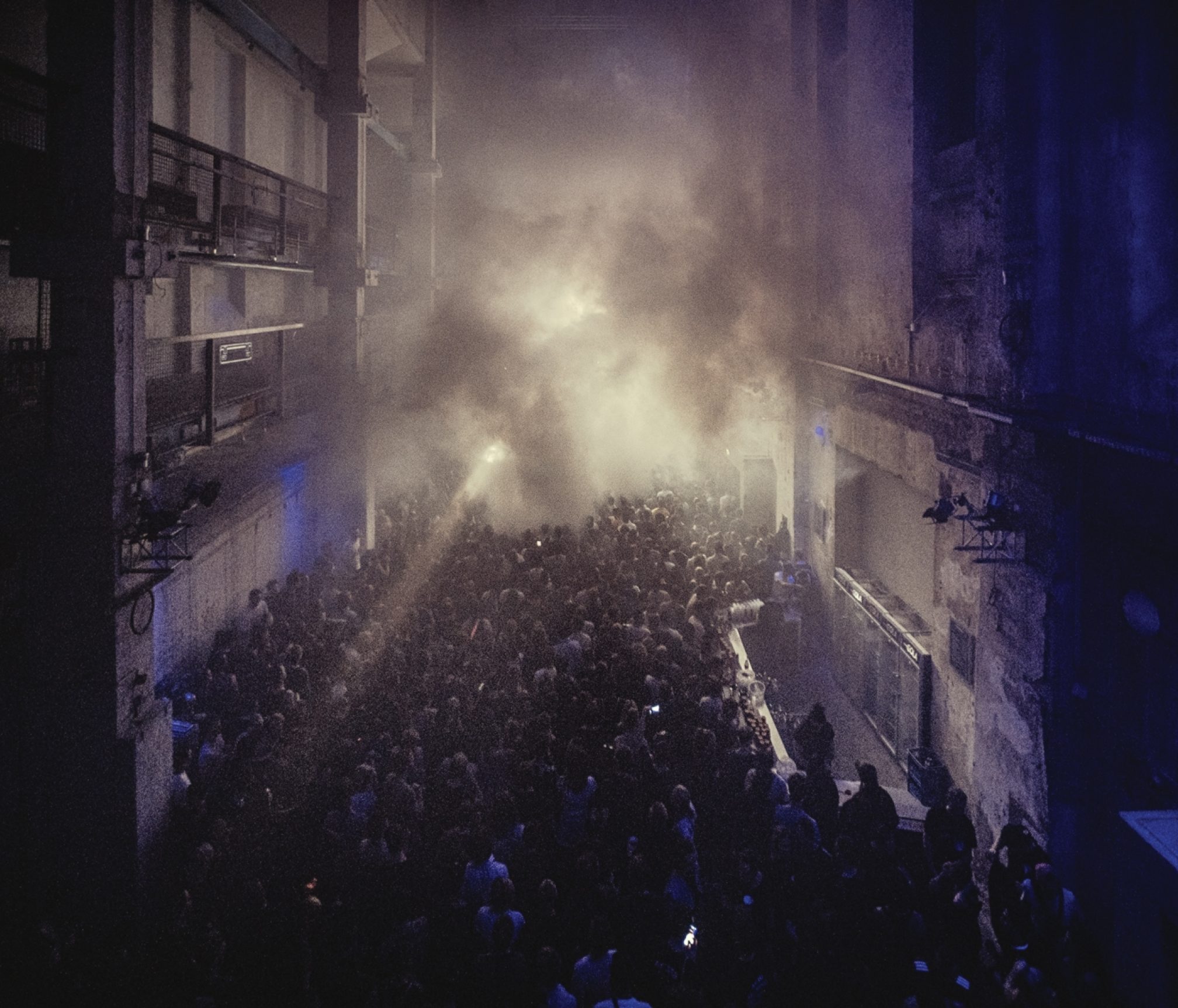
Make no mistake, MMA is a stunning venue with an incredible vibe. But Rias leans in and lowers his voice, as though revealing a little-known secret. “In the 1930s,” he says, swirling his finger to indicate the neighbourhood around us, “all this was NSDAP.” It stands for National Socialist German Workers’ Party, also known as the Nazi Party.
Of all the 21st century clubs which bear the scars of 20th century history, surely none are more redolent with ghosts than MMA. The Munich Agreement of 1938 was signed in the building behind us, and this 1930s-constructed building was the kraftwerk (power station) which drove the district. MMA’s second room is the basement of a small courtyard art studio, where the Nazis once serviced their vehicles.
“There has been bad energy in these buildings,” says co-owner Mark Maurer (the third is Constantin Mascher, not present), an urbane young architect from whose designs MMA was created. “We bring the opposite. We have no VIP area: everyone comes here as equal, there is no rank or social standing, it doesn’t matter your gender or sexuality. That’s really important to us.
“Do you want to see our Indian restaurant?" he continues, taking us to see this unlikely addition, a separate, laid-back late-night café. There he explains something of Munich’s clubbing history and the problems facing MMA and the city right now. Until the 1990s, the Bavarian city close to Germany’s southern alps had a nightlife which was small-scale, but known for being open-minded; then the conversion of the city’s former airport into large-scale rave and concert venue Riem put it on the map.
After this, the cultural heart of the city moved to Kunstpark Ost (“there were more clubs and cultural spaces there than any other city in Europe at one point,” says Maurer), yet in the last decade things have suffered a relative collapse. Ten years ago there were roughly 100 cultural venues in the city, now there are only 50; and while that includes the recently opened Blitz, a much talked-about 600-capacity space at the Deutsches Museum whose local residents include Ilian Tapes’ Zenker Brothers and Skee Mask, it very soon won’t include MMA.
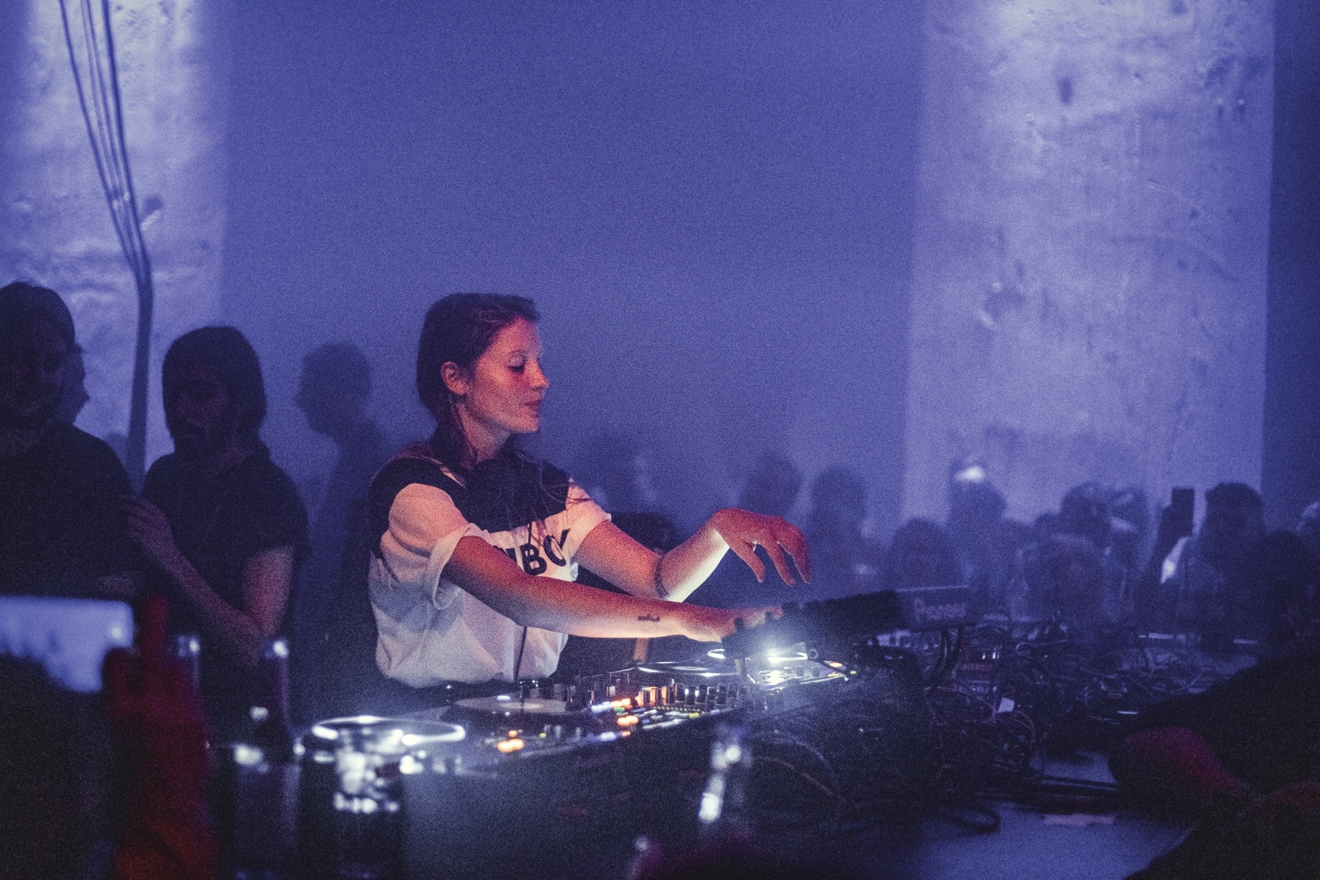
Echoing a story playing out across Europe, the building’s owners have decided to tear it down to make space for a housing development. Regulars are fighting back, and the #SaveMMA petition is thousands-strong, but the chances of success are unclear.
MMA is at the centre of a loose triangle between Munich’s hauptbahnhof (main station), the glossy shopping and tourism district radiating out from Marienplatz, and the Kunstarea gallery and university quarter. Yet it feels unusually quiet: perfect for a rumbling club building, but also for developers looking to add to a city best known for its business economy, Bayern Munich and the tourist trap that is Oktoberfest.
“In Munich we’re feeling the pressure more than most,” says Maurer. “House prices are exploding, the inner city is almost dead because the people who live there use it as a second home. The politicians play culture and housing off, but you need both for a liveable city, and they have no feeling for the subcultural part. What’s the vision for the future? Munich is growing, and you need a big picture for younger people and for people who want events like this. In Berlin, [when an area becomes gentrified] you can go to the next part of the city and discover more. Here in Munich we don’t have that many more places.”
The security staff are relaxed now that the hundreds queueing have been told the bad news and dispersed into the night. For Charlotte de Witte, her debut MMA set may have been her last. “I feel very fortunate to have been able to play here,” she tells us afterwards. “It’s a proper warehouse, very raw and industrial, and the vibe was unbelievable. I hope that cities and governments around the world acknowledge the importance of nightlife a bit more.”
Rias can reel off a list of great bookings he’s made – Adam Beyer, Tale Of Us, Marcel Dettmann – but speaks with equal pride of how supportive the venue has been of homegrown German talent like Etapp Kyle and Kobosil. Club room resident Marcella Strasser is a 27-year-old from Ingolstadt, just outside Munich, who has cut her teeth here. “MMA is unique in Munich’s venue landscape,” she says. “You meet a lot of young dancers as well as experienced ravers from all over the world. For many, visiting MMA is a vacation, which is one reason for the open-minded vibe at the club.”
If the building is gone by the time you read this, the brand won’t be: Maurer tells us they’re looking for spaces worthy of the legacy, and if they can’t find one, MMA events at other venues might be an option. “The city needs a plan,” he says. “We need to open a discussion.” He can at least be proud to have played a part in such a special club.
David Pollock is a freelance writer and regular contributor to Mixmag, follow him on Twitter
Read this next!
The art of club design
Build something together: 10 years of Ilian Tape
Dropping a male pseudonym has led Charlotte de Witte to find her true sound

